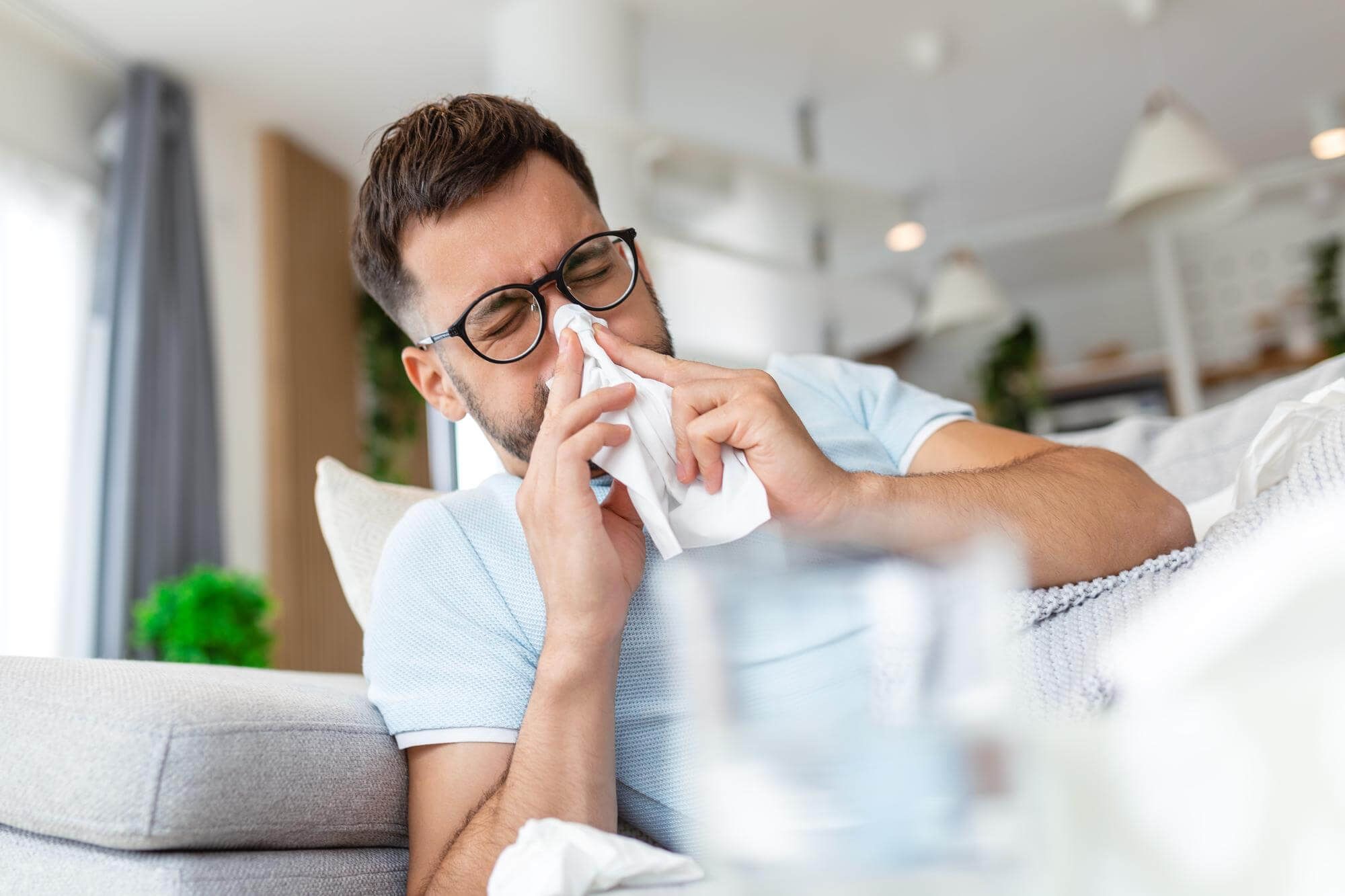Choosing nasal drops for allergies: useful tips and advice


Viktor Levchenko
Allergies are a reaction of the immune system to various substances called allergens, which can cause discomfort or painful symptoms. The most important remedy for relieving these symptoms is allergy nasal drops. This medication is a topical remedy that relieves symptoms such as nasal congestion, sneezing and itching.
What allergens cause a reaction in the nasal cavity?
Allergic reactions in the nasal cavity are usually caused by allergens such as dust, pollen grains, pet hair, dander or fungal spores. In addition, a reaction to certain medications may also occur.
Possible symptoms of nasal allergies
Symptoms that may occur with nasal allergies include itching, nasal discharge, sneezing, congestion and nasal bleeding. In some cases, general symptoms such as headache, fatigue, or irritability may also occur.
How to choose nasal drops for allergies
The choice of allergy drops for nasal allergies depends on many factors, including the type of allergy, its symptoms, the patient's age, the presence of other conditions, and individual tolerance to the medication.
Types of nasal allergy drops

Antihistamine drops block the action of histamine, the substance that causes allergy symptoms. Examples of antihistamine drops are Allergodil, Levocabastin.
Glucocorticosteroid drops are hormonal drops that have anti-inflammatory and anti-allergic effects. These include Nazonex, Avamis.
Combination drops - these drops include in their composition several active components, such as antihistamines and vasoconstrictors. Examples of such drops are "Vibrocil", "Sanorin-Anergin".
Popular brands and drugs
Among the most popular and effective drugs are "Nazivin", "Otrivin", "Tizin Allergy", "Prentifrin". They are inexpensive nasal allergy drops that are well tolerated by most adults.
Factors that influence the choice of drops
The type of allergy and its symptoms affect the choice of medication. For example, if you have allergic rhinitis, antihistamine drops are best, and glucocorticosteroid drops if you have an allergic runny nose.
It is important to consider age restrictions and possible side effects of the drug. Some nasal allergy drops are not recommended for children or pregnant women.
How to use allergy nasal drops correctly
- Nasal drops for allergies should generally be injected into each nostril 1-2 times a day, but the dosage and frequency of use may vary depending on the product and the symptoms.
- Regular use of the drops and strict adherence to your doctor's recommendations and directions for use are recommended for the best effect.
- The duration of use depends on the type of drug and the symptoms of allergy. Some drops can be used for a long time, others only for a short time.
Side effects and contraindications of allergy drops
Side effects may include dryness in the nose, burning, bleeding, or headaches. It is important to see your doctor if these symptoms occur. Allergy drops are contraindicated if you are hypersensitive to the components, as well as certain nasal and eye conditions.
In conclusion, there are many factors to consider when choosing nasal drops for allergies, and this is best done under the supervision of a doctor. It is important to remember that each drug has its own peculiarities of use, side effects and contraindications. Do not forget about regular use and proper dosage of drops to achieve the best effect.
New materials
Popular Articles
We recommend reading
Contact us in the Contact Us section to ask questions, offer ideas, or for more information about our allergy resource.
Our articles are your trusted source of allergy knowledge. Learn how to make life with allergic reactions easier on our specialized portal.
©
Lechenie-Allergii.com. All rights reserved.
© Lechenie-Allergii.com. All rights reserved.
The information on this site is for informational purposes only and is not a substitute for professional medical advice. We recommend consulting with qualified medical professionals for accurate information and advice.
 English
English  Українська
Українська  Русский
Русский 









